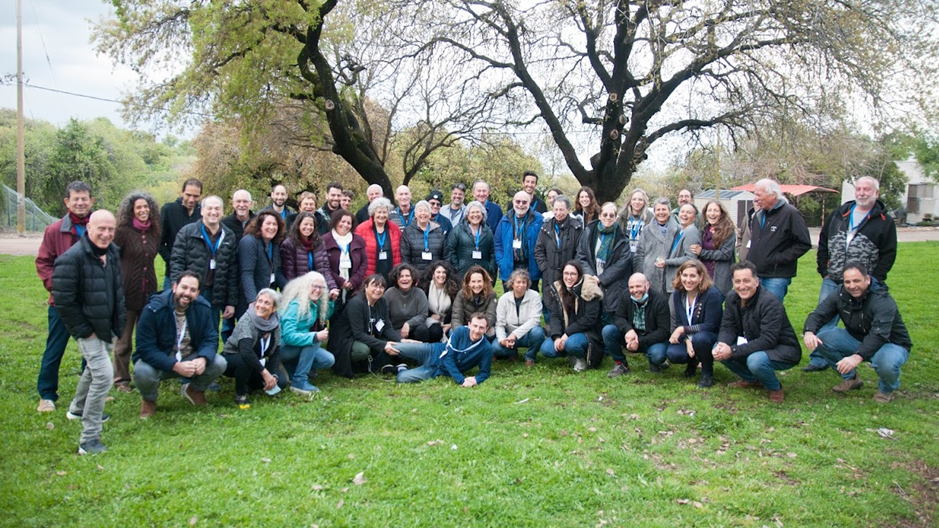Against all odds: Israel's first citizens' assembly

On 17 May 2022 the first Israeli citizens' assembly presented 22 recommendations to the municipality of Kiryat Tiv'on, concluding three months of deliberations. In the spirit of climate assemblies, the remit of this assembly was reduction of waste sent by the town to landfills, which is both one of the biggest contributors to greenhouse gasses and one of the most expensive categories on the municipal budget.
"I truly believe that when people become a part of the process and when they study the practical limitations, their solutions will be realistic and feasible" said Ido Greenblum, Mayor of Kiryat Tiv'on. "I hope this citizens assembly becomes a model for governmental Ministries and other municipalities to adopt. I believe this is the way forward".
Reduction of waste sent to landfills is key to combat climate change
The topic of waste is a pain point in Israel, where 80% of waste is sent to landfills and with limited recycling or re-using methods in place, Israel lags behind many developed countries. Besides producing greenhouse gasses, landfills pollute ground water and consume vast amounts of land - two resources Israel is short of. The Ministry of Environmental protection has set a target of 80% waste recycling by 2030, but this goal seems farfetched at the current rate of progress.
Since the specified goal requires a radical shift in consumption and waste disposal, the Municipality of Kiryat Tiv'on determined this suitable topic for a citizens' assembly - drawing from the tool's legitimacy to enact the needed reforms. The Tiv’on Municipality has a long history supporting reforms to transition to a greener environment, and decades ago was the first Municipality in Israel to distribute recycle bins.
The first Israeli citizens assembly
To set up the selection process, 6000 text messages were sent via phones to a random sample of Tiv'on's residents, and 60 of the respondents were selected to participate. The sortition ensured a representative sample in terms of gender, education, neighborhood, and age group.
The participants met for four six-hours sessions, and met with eight experts in the field, before deliberating possible recommendations. In between these sessions, some of the members attended a guided tour to several landfills, to help them grasp the magnitude of the problem. An additional event entailed a public hearing where members of the community were invited to hear about the progress of the Assembly's work and active environmental initiatives in their town. They were also invited to propose ideas and discuss the remit with assembly participants.
Recommendations were voted upon completion of the Assembly process and an editorial committee of Assembly participants collated and finalized the concluding document presented to the Town Mayor at the May 17th 2022 closing event.
Against all odds
The first Israeli citizens assembly was set in motion by the Heschel Center for Sustainability, along with a growing team of volunteers and researchers who jointly formed a Citizens Initiative to promote citizens assemblies in Israel. 21 municipalities in Israel completed an invitation to tender with the aim to conduct a local assembly pilot, of which Kiryat Tiv'on was selected.
The assembly operated with a minimal budget, relying mostly on volunteers, including professional facilitators and experts in participatory democracy. A further complication was that unlike other countries, no work can be done over the weekend in Israel as the Sabbath is considered sacred and therefore not suitable to large group of the population. This means that all events had to take place during weekdays, requiring participants to take time off work. The amount of time the assembly consumed, alongside the lack of funds required to compensate participants for their time and efforts, added an extra challenge and prevented some citizens from joining the initiative.
“Potential to solve problems”
Despite these challenges, the assembly was considered to be a success by many of its participants. "The entire process was surprising. I was initially skeptic of our ability to reach informed recommendations, but I was proved wrong" said one participant. "If this kind of processes was to become a trend, it has potential to solve many of our problems", another added.
Subsequent to submission of the recommendation, several assembly members established a separate initiative to promote the implementation of the recommendations, as well as general awareness of waste management across the town.
22 recommendations
The assembly report included 22 recommendations in the fields of recycling, local management of organic waste, regulations for local businesses, public education and institutional reforms. These recommendations included
- Distributing compost bins to residents and running workshops on proper use of these bins.
- Requiring the municipality and all public institutions to adhere to a set of regulations – reducing single-use plastics, and a minimal level of recycling.
- Creating a minimal standard that all businesses must adhere to, and using tax benefits to incentivize further waste reduction.
- Creating a public awareness campaign based on the community's pride in its green culture and history.
On 11 July 2022, municipal officials held their first discussion regarding the recommendations, and plan to submit their response to the assembly within the coming months.
This article was provided to us by Israeli citizens' assembly campaigner Oren Matar.
Read more: Citizens' Assembly on Waste Policy in Kiryat Tiv'on